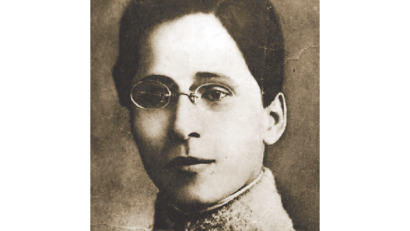
In the 1980s, the economic and systemic crisis of the communist regime had reached a climax

Police officer Eugen Alimanescu was extolled by the communist regime as an incorruptible man, a man who enforced the law. In reality, far from being a hero, Eugen Alimanescu was an instrument of the regime of terror

In 1918, Greater Romania incorporated minority communities accounting for 28% of its total population

Ionel Bratianu was the eldest son of Ion C. Bratianu, one of the leaders of the 1848 Revolution in the Romanian Principalities and a politician who...

Construction sites were one of the most powerful symbols of the communist regime in Romania, a symbol, which kept its reputation even after the demise of communism, although it got heavily politicised like any other symbols

After 1989, Romania was short of a forum for exchanging ideas and promoting political initiatives.

Ecaterina Teodoroiu was a symbolic figure of WWI thanks to her personal sacrifice. She was the soldier-woman who refused to stay behind the front line, where battles were fought, choosing instead to be present where clashes were fiercest

Romanticism was a literary and artistic movement that placed ethnicity and language at the heart of human existence.

Moldovan identity emerged as a formula in the imperialist discourse of Russia, used to undermine the construction and consolidation of the Romanian state as early as the mid 9th century

Ion Ratiu was one of the most prominent and outstanding Romanian democratic politicians after 1990, who militated both against the fascist and communist dictatorships

The first Russian-Turkish war of the 19th century had a tragic outcomes for Romanians in Moldavia

On May 10th, 1877 Romania proclaimed its independence and became one of the 20 European nations enjoying this status

The communist regime that was freshly instated in 1945 initiated an education reform.

Bucharest, as any modern city, has been constantly changing since the first half of the 19th century.

After the painful loss of the national treasure, which was taken by Russia during WWI, the Romanian authorities thought of taking the treasure of the National Bank of Romania to a safer place during WWII
